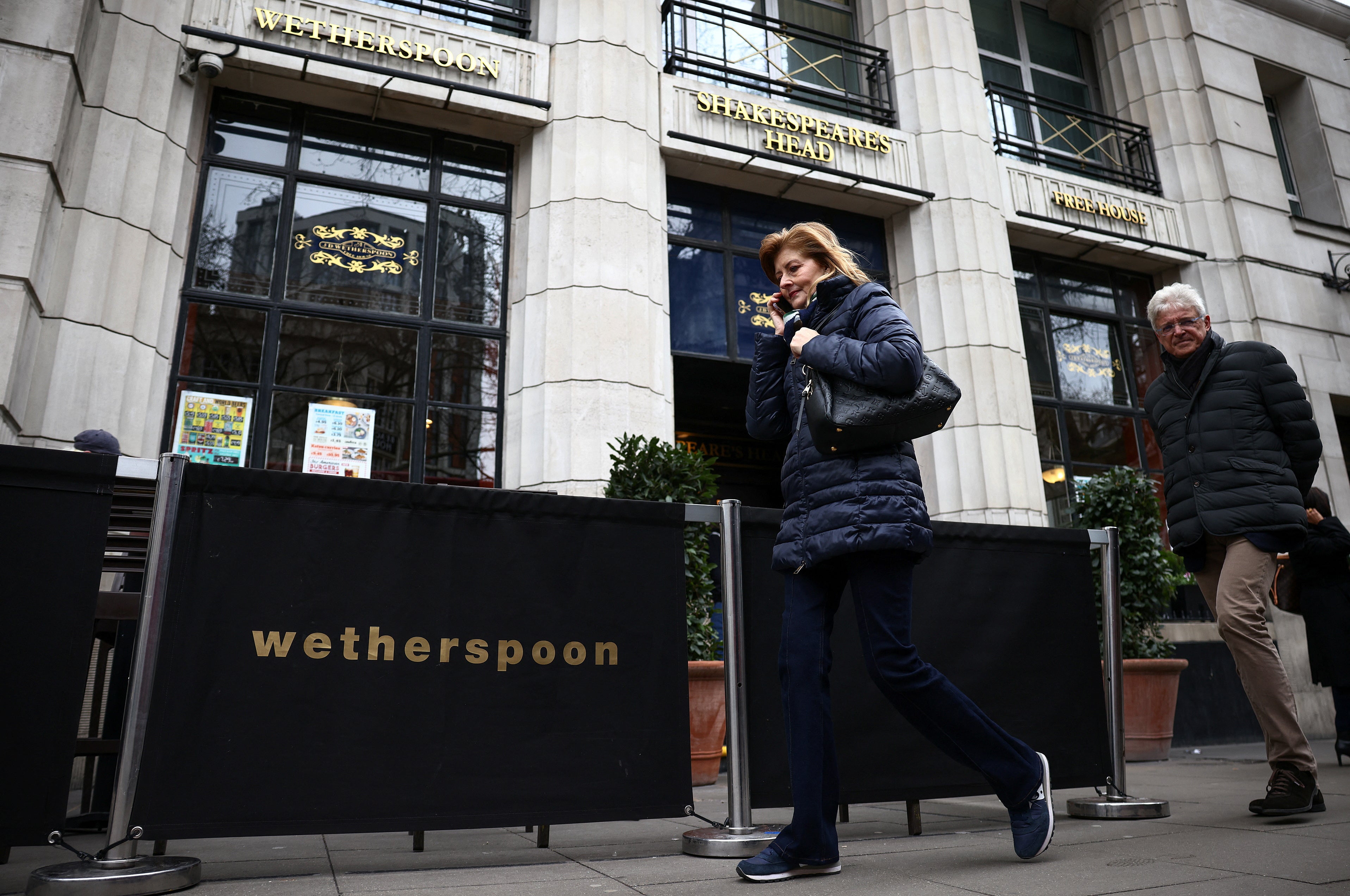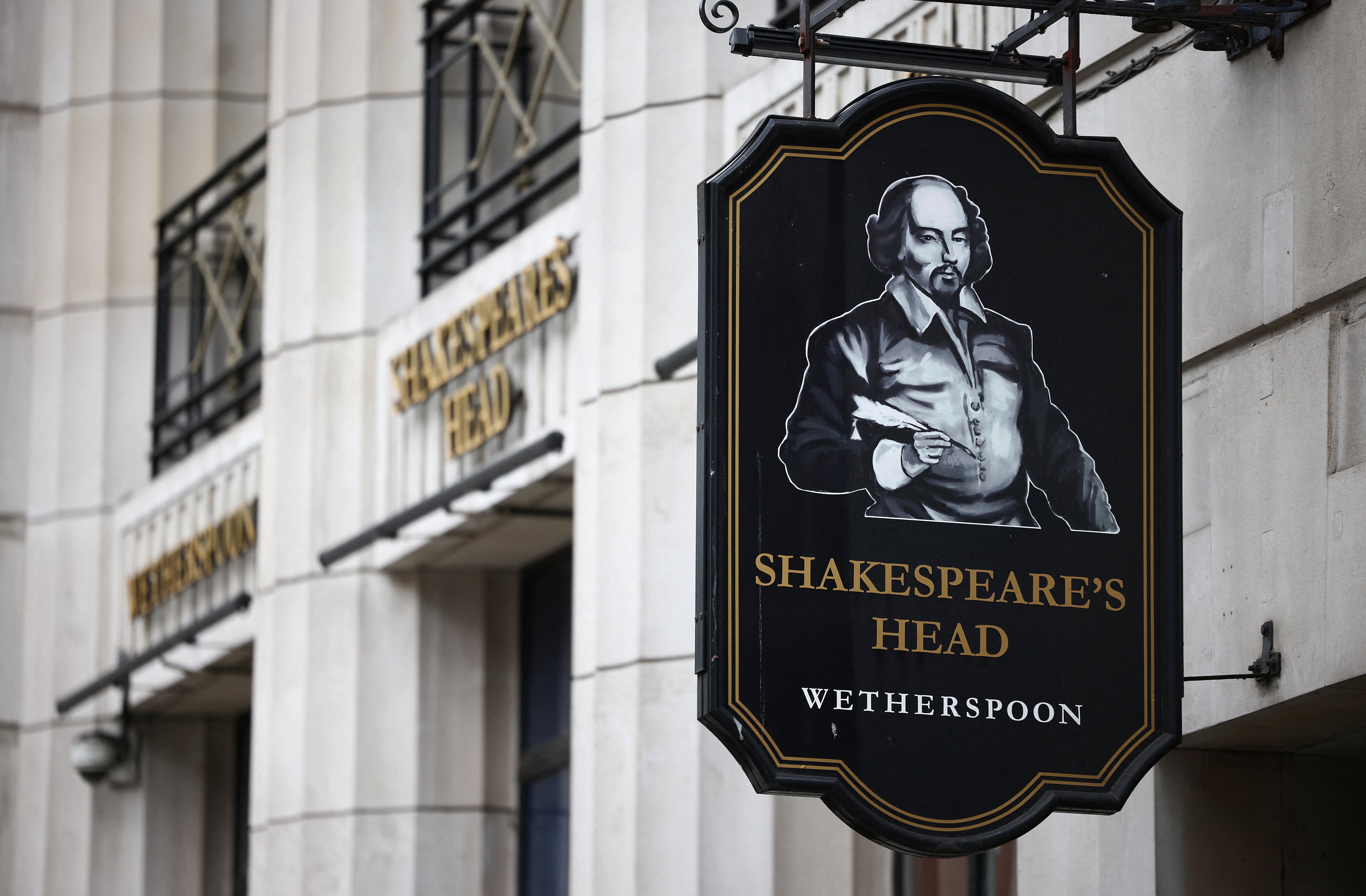
Leading pub chain J D Wetherspoon has warned that its prices could rise if sales do not continue to grow amidst “ferocious inflation.”
Sales have been increasing since lockdown restrictions were lifted but with inflation reaching 10.4% in February, the chain remains “cautiously optimistic.” If takings do not continue to grow at a “modest” rate, then it could be forced to hike prices further.
J D Wetherspoon owns just shy of 900 pubs across England, Scotland, Wales, Northern Ireland and the Republic of Ireland, opening its first establishment in Muswell Hill, north London, in 1979.

Wetherspoons has already adjusted its prices in 2023, upping its traditionally affordable options by 7.5%.
Questioned on the potential for further price increases amidst rampant inflation, chairman Tim Martin told The Independent: “We try to remain competitive in every pub, helped by long-term relationships with suppliers, a majority of freehold pubs, efficient working practises and so on.”
However, one expert has suggested that the chain could find itself in a more favourable position than its competitors amidst the challenging economic climate. Charlie Huggins, head of equities at Wealth Club, anticipates that its low prices remain attractive to customers.
“Overall, while there are reasons for optimism, 2023 is shaping up to be yet another challenging year for Wetherspoons”, Mr Huggins told PA.
“Higher interest rates and inflation are strangling the economy, and leading to significantly higher costs for the group.
“Combine this with Wetherspoons’ low margins and low price strategy, it means the group faces an uphill battle in the current environment.”
On Friday, the company reported a pre-tax profit of £4.6m for the 26 weeks to 29 January 2023, having previously experienced a £26.1m loss in 2022.
The company’s like-for-like sales were also higher than in January 2022 – increasing by 13.1% - but were still lower than pre-pandemic figures, which were 0.7% higher in January 2020.
"Inflationary pressures in the pub industry, as many companies have said, have been ferocious, particularly in respect of energy, food and labour”, Mr Martin’s statement read in the company’s Interim Report.

"Having experienced a substantial improvement in sales and profits, compared to our most recent financial year, and with a strengthened balance sheet, compared both to last year and to the pre-pandemic period, the company is cautiously optimistic about further progress in the current financial year and in the years ahead.”
Meanwhile, the Bank of England has advised that businesses raising prices will lead to a further hike in interest rates.
On Thursday, interest rates were increased to 4.25 per cent from 4 per cent after the Bank’s Monetary Policy Committee (MPC) voted seven to two for the rise. The decision was made following Wednesday’s news that inflation had jumped unexpectedly to 10.4 per cent in February amidst the highest food prices the UK has seen in 45 years.
In an interview with BBC Radio 4’s Todayprogramme, the Bank’s governor said: “I would say to people who are setting prices – please understand if we get inflation embedded, interest rates will have to go up further and higher inflation really benefits nobody.
“If all prices try to beat inflation we will get higher inflation.”







